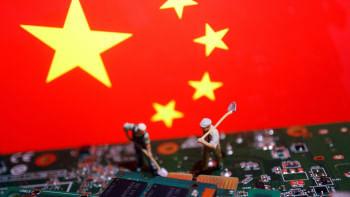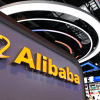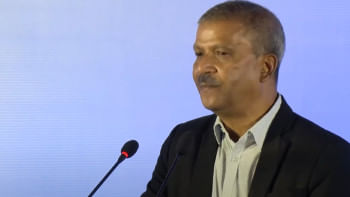The 'six tigers' that drive China's AI geopolitics

Astrophysicist Professor Ye Zhetai is dragged before a crowd of Red Guards and cheering onlookers. He refuses to denounce Einstein's theory of relativity as a "reactionary bourgeois academic" idea. The hysterical crowd watches as he is beaten with brass buckles and iron bars, his scientific principles costing him his life. Chinese writer Liu Cixin's science fiction masterpiece "The Three-Body Problem" opens with this brutally haunting image of how the Communist Party once punished the country's leading scientists for holding onto their scientific principles.
Six decades later, China leads in several areas of science and technology. This remarkable transformation is highlighted by the rise of six AI startups: StepFun, Zhipu AI, Minimax, Moonshot, 01.AI, and Baichuan—known as the "Six Tigers." Each has a valuation exceeding at least $1 billion, with Moonshot valued at $3.3 billion, Baichuan at over $2 billion, and Minimax at $2.5 billion. How has this extraordinary turnaround happened?
Behind the six tigers stands another crucial force: China's four dragons—Alibaba, Tencent, Baidu, and ByteDance, which play a vital role in nurturing the AI startup ecosystem. These dragons provide more than just funding; they offer cloud computing infrastructure, vast datasets, and most importantly, experienced talent who eventually spin off to create companies like the six tigers.
Beijing has crafted a clear national strategy that considers AI development a matter of national security and economic survival. It is investing heavily in this sector, including an $8.2 billion AI fund for startups. The government doesn't just fund research—it also removes obstacles, simplifies regulations for AI companies, and creates large domestic markets where these firms can test and improve their products. When Zhipu AI needed computing resources, when 01.AI wanted to open-source its models, or when Moonshot sought regulatory clarity, the system was designed to say "yes" rather than "wait."
The education system has also turned into an AI talent factory, with the six tigers as its biggest beneficiaries. Tsinghua University, Peking University, and other educational institutions aren't just teaching computer science—they're graduating students who think in terms of machine learning, neural networks, and large language models from the start. Chinese institutions have long adapted to produce the kind of talent that tech startups need to compete worldwide. With over 10 million graduates each year, many of whom are focused on AI, this generates an endless pipeline of young talent buzzing with ideas. Recent studies show that 90 percent of AI researchers who studied in China have chosen to stay there. In addition to retaining the country's talents, the AI firms are also attracting top Chinese researchers from Google, Microsoft, and other Western giants, demonstrating their ability to attract and benefit from global expertise.
The six tigers didn't just appear; they were cultivated by a system designed to produce exactly this kind of success. These companies emerged from China's "Hundred-Model Battle," where over 300 large models were released by 2023, with the six tigers representing the elite survivors who achieved billion-dollar valuations. Now, having reached these valuations, they're ready to reshape the global technology landscape.
First, they are democratising AI access. Companies like 01.AI are making world-class AI models freely available through open-source releases, proving that cutting-edge AI doesn't have to be locked behind expensive APIs. The rise of the six tigers represents more than economic competition—it signals a fundamental shift in global power dynamics that governments worldwide are scrambling to understand.
For decades, the United States has dominated global technology through companies like Google, Microsoft, and OpenAI. The tigers' success shows that this dominance isn't permanent. When 01.AI releases models that compete directly with GPT-4, or when Zhipu AI's research rivals anything coming out of Silicon Valley, it forces a recalculation of who leads in AI. This isn't just about corporate competition—it's about national influence. Countries that control AI technology will shape how the world works, from economic systems to military dominance. The tigers give China a seat at the table where these decisions are made.
Second, and perhaps more importantly, the tigers are creating alternatives to Western-dominated tech infrastructure. A prime example is Moonshot AI's recent launch of Kimi K2, a trillion-parameter model that competes with OpenAI's most advanced systems while being distributed as an open-weight model. This strategic move could fundamentally change the global AI landscape. When countries can access trillion-parameter AI capabilities, it significantly reduces US technological dominance. Kimi K2's open availability means any nation can develop advanced AI applications without needing to adhere to US export controls or technology restrictions. The geopolitical implications extend beyond technology itself. The tigers aren't just selling software, they're exporting a different vision of how digital societies should work.
Third, the six tigers' success has intensified a new Cold War between tech superpowers, where export controls and investment restrictions are the weapons. This competition, while creating tensions, is also driving unprecedented innovation on both sides. Moreover, this creates risks, as we may soon see the global internet fragment into separate, incompatible systems. This scenario could become more likely, as countries may face pressure to choose between the two camps.
In the multiple Oscar-winning US sci-fi film Gravity (2013), directed by Alfonso Cuarón, Dr Ryan Stone (Sandra Bullock), an engineer on her first space mission, is rescued back to Earth by a Chinese spacecraft. This ending might not be a coincidence, as in today's China, scientists like Professor Ye Zhetai are viewed not as "bourgeois puppets," but as national assets.
Dr Sayeed Ahmed is a consulting engineer and CEO of Bayside Analytix, a technology-focused strategy and management consulting organisation.
Views expressed in this article are the author's own.
Follow The Daily Star Opinion on Facebook for the latest opinions, commentaries and analyses by experts and professionals. To contribute your article or letter to The Daily Star Opinion, see our guidelines for submission.

 For all latest news, follow The Daily Star's Google News channel.
For all latest news, follow The Daily Star's Google News channel. 










Comments